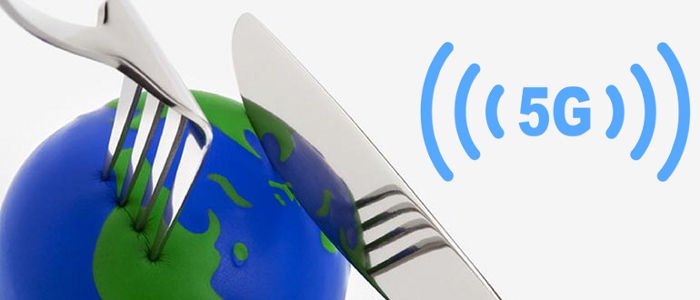
I’ve been thinking lately about the approaching 5G mobile network technology, particularly in its potential implications for our investment thesis, or even what it could mean for some of our portfolio companies. To help structure my thinking, I thought it appropriate to re-read Marc Andreessen’s prescient 2011 essay, Why Software Eating the World.
Without going too deep on it here, Andreessen’s framework in Software is Eating the World encompasses three forms of his hypothesis: a weak form, a semi-strong form, and a strong form. The weak form of it is that most hardware products will be replaced by software. This has largely proven itself to be the case; remember those Radio Shack stores from the 1990s ? Many of the products on that now defunct retailer’s shelves have essentially become apps on a smartphone.
The semi-strong form of the hypothesis was that any company that makes a product which could then be replaced by software will have to transform itself into a software company. The strong form hypothesis in Software is Eating the World is that for any industry which is facing this dynamic, the winning company in such an industry will be natively a software company in the long run.
In terms of innovation in the telecom sector, my feeling is that all three forms of Andreessen’s hypothesis will prove valid. Certainly the weak form has already been demonstrated to be true. The first example that comes to mind is the now ubiquitous adoption of voice-over-IP technology. Skype, Zoom, or your favorite messaging app has replaced much of the prior telecom switching hardware to make a long-distance phone call. It would also seem that the semi-strong form of the hypothesis has proven appropriate as well. Technologies like dynamic resource allocation, for instance, have rendered imperative the ability of telecommunications companies to transform into software companies.
The open question now is whether the strong form of the Software is Eating the World hypothesis will prove applicable to the telecommunications sector. In other words, will the leading telecom company of tomorrow be a software company that moved into telecommunications, or rather will it be a phone company that figured out how to do software ?
My suggestion is that the advent of 5G network technologies will represent a litmus test on this question.
I am far from a domain expert, but I do understand that 5G actually represents a quite disruptive change, not an incremental innovation, in telecommunications. I understand that the infrastructure — the antennae, the density, the power, the frequencies required in 5G — differs materially from the infrastructure currently in place for 3G and 4G networks.
Japan will give us an early indication of how this might play out among incumbent telcos around the world. Last year, e-commerce giant Rakuten obtained authorization for the country’s fourth mobile telecom license from the Japanese authority. Rakuten is a $15 billion digital native company that started as a Japanese e-commerce platform originally, and has since expanded into a number of adjacent platform businesses like gaming, messaging, and financial services.
In preparation for the launch of Rakuten Mobile, I understand from some people inside the company that they started with a blank sheet of paper and asked themselves: if we were going to start a telecom company today from scratch (which is effectively what they are doing), how would we do it given current state-of-the-art technologies and total absence of any legacy infrastructure concerns ? In other words, this is a software company that is taking a fresh approach to learning how to do telecommunications.
Probably trailing Japan, but the U.S. may also illustrate a similar phenomenon, where rumors have recently begun swirling that during the Sprint/T-Mobile merger discussions, the Department of Justice is trying to broker a deal in which Dish Networks teams up with one of the OTT players such as Google or Amazon to become the fourth national mobile carrier.
Despite approaching the 8-year anniversary of Why Software is Eating the World, its theme still remains relevant today.
